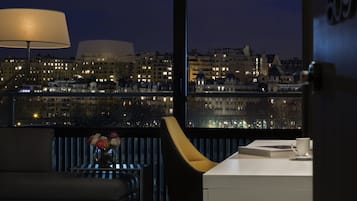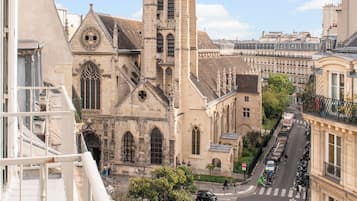The Arc de Triomphe is famous all over the world as the cherished symbol of French national identity. As a war monument, France's greatest victories are memorialised on its ornate walls, along with pivotal speeches, celebrated generals and fallen soldiers. As well as hosting armistice remembrances, the arch is the final point of the Tour de France cycle race and the Paris Marathon, and a key point on the Bastille Day military parade.
Twelve of Paris's main thoroughfares radiate from the arch, including the iconic Champs-Élysées. The avenue is best admired from the terrace at the top of the monument, which also boasts outstanding views of the Louvre, the Place de la Concorde, and the Eiffel Tower. Whether you're a fan of military history or just stopping by after a Champs-Élysées shopping trip, you can't visit Paris without ticking the Arc de Triomphe off your list.
Arc de Triomphe in Paris - one of the highlights of 10 Best Things to Do in Paris and 11 Most Important Monuments in Paris (Read all about Paris here)
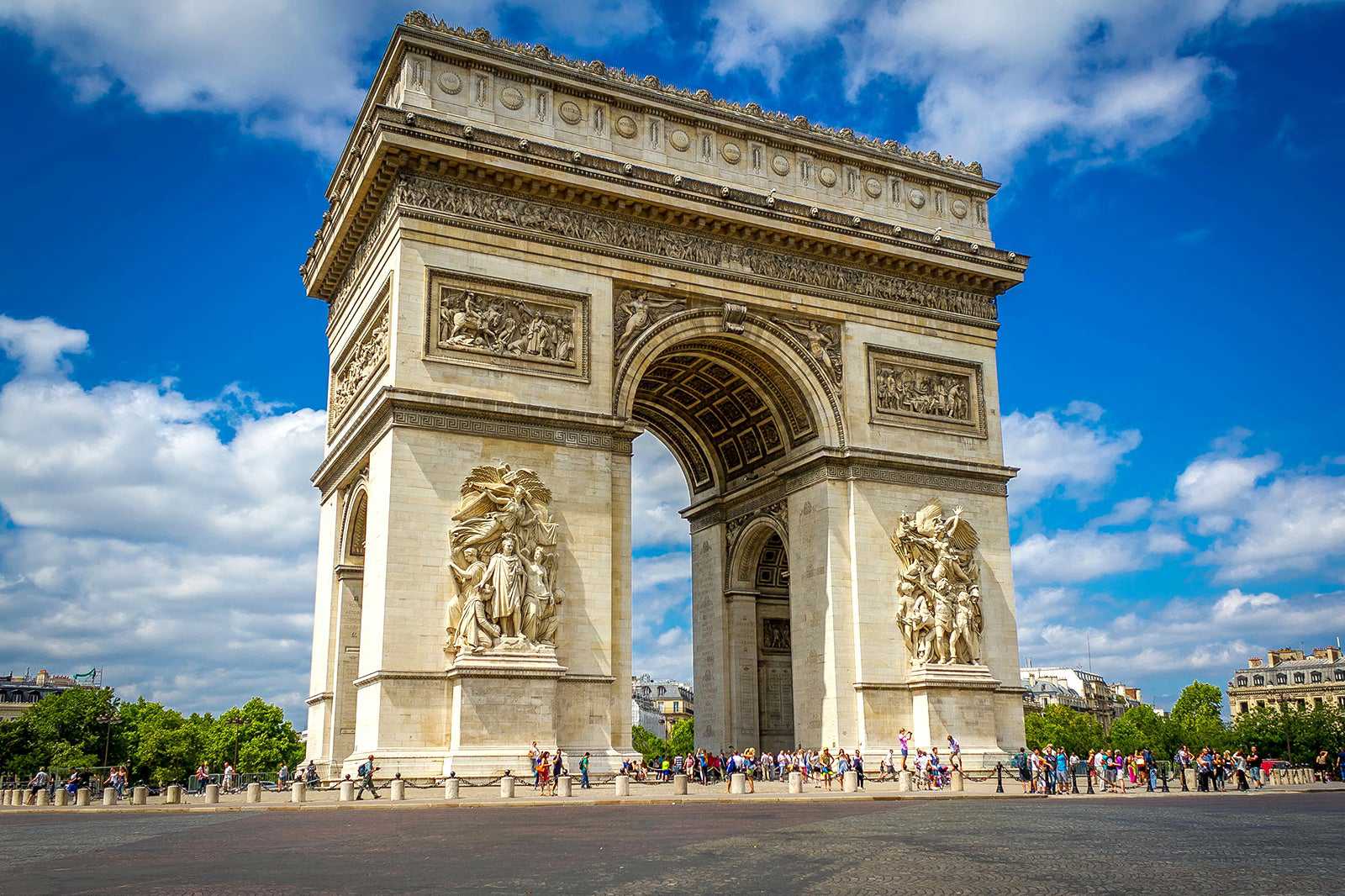
A brief history of the Arc de Triomphe
The Arc de Triomphe was commissioned by Napoleon I in 1806 to honour the military victories of the French army, particularly the Battle of Austerlitz. Work on the arch was abandoned after he abdicated as emperor in 1814. It was finally completed during King Louis-Philippe’s reign in 1836, and opened on the 29th of July that year.
Jean-François-Thérèse Chalgrin designed the arch, which was inspired by the great triumphal arches of ancient Greece and Rome, especially Rome's Arch of Titus. The monument is 50 metres high, with the names of famous battles from the Revolution and the First Empire. A plaque set on the floor details Charles de Gaulle's famous French Resistance speech from 1940.
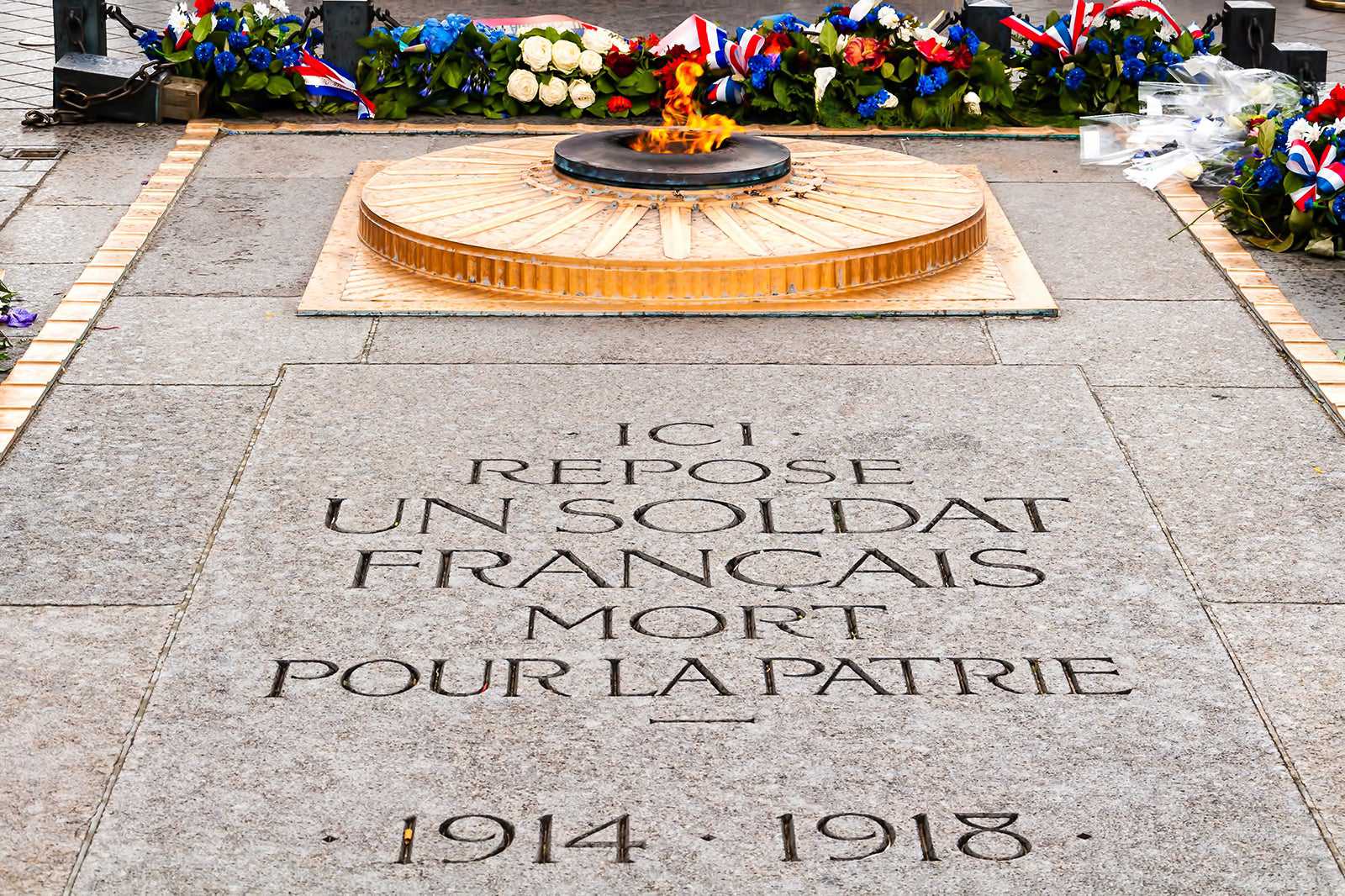
What are the highlights and features of the Arc de Triomphe?
Start your visit at the base of the arch, where the Tomb of the Unknown Soldier honours the millions of French soldiers who died in WWI. The eternal flame, which has been burning since 1923, is renewed in a daily ceremony at 6.30 pm. As you walk around, you'll spot several sculptures and friezes depicting important 18th-century battles, including the famous sculpture La Marseillaise, which portrays a French Revolutionary uprising.
A lift takes you to the upper part of the arch, where a small museum contains interactive exhibits explaining the monument's architecture in more detail, plus some interesting bits of French military history. Climb the remaining 40 steps to reach the terrace, with its arresting views of the Champs-Élysées. The scenery at night is especially enchanting when the brightly lit Eiffel Tower stands out from the surrounding landscape.
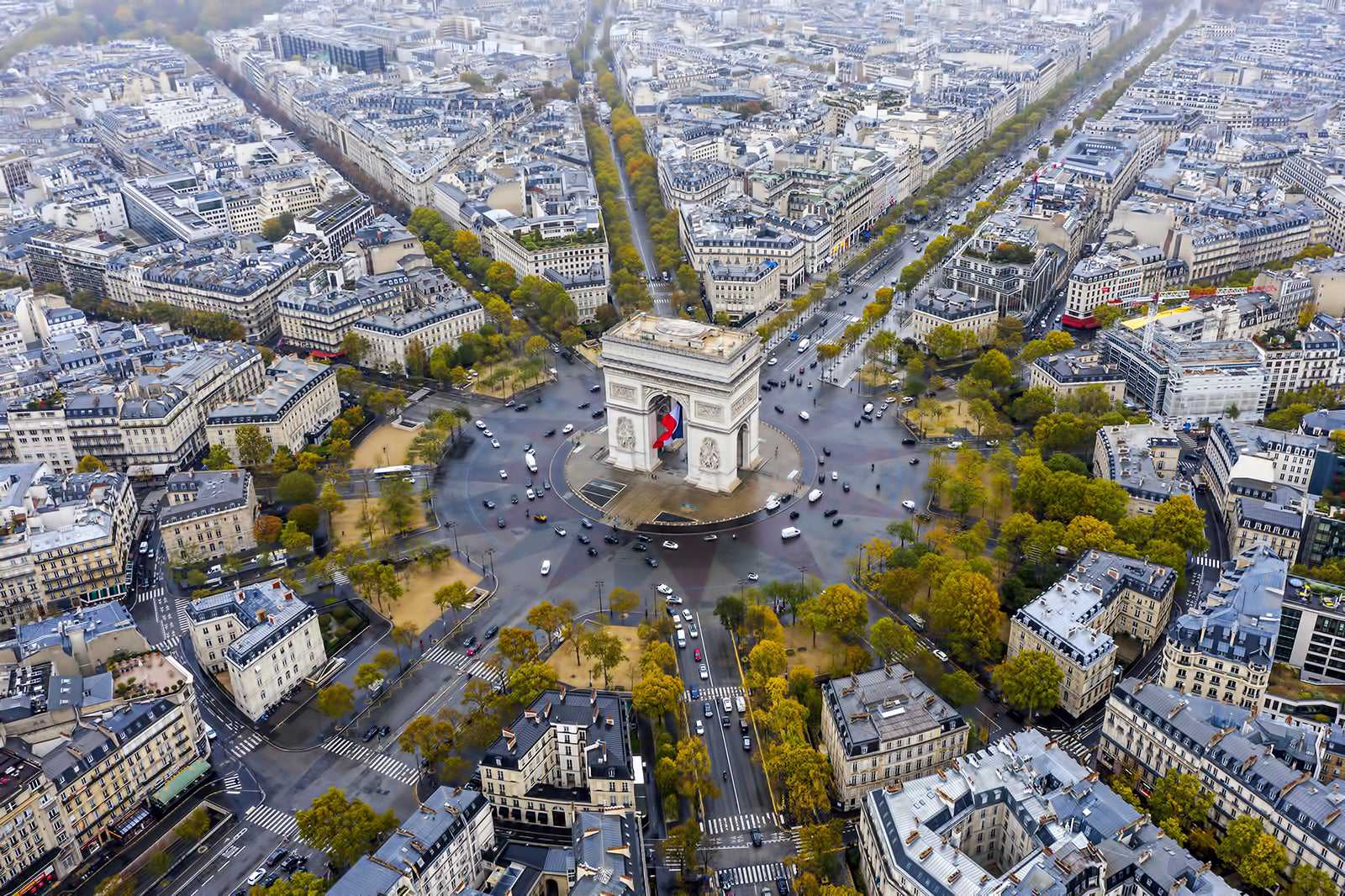
Good to know about the Arc de Triomphe
You can get to the Arc de Triomphe via train. The nearest subway station is Charles de Gaulle–Étoile, which is linked to lines 1, 2, and 6 as well as the RER A commuter train. Heavy traffic makes the road around the Arc dangerous to cross – instead, take one of the pedestrian underpasses from either the Champs Élysées or the Avenue de la Grande Armée. The arch is included in the Paris Pass, which you'll find more convenient if you're visiting several different monuments.
Tours are available in English and French, and self-guided tours in these plus 8 other languages. The Arc de Triomphe also has a mobile app that will draw your attention to interesting features and help you identify Paris landmarks from the terrace. This area of Paris is thick with landmarks, so try combining your visit with a stroll along the Champs-Élysées or a visit to the Paris Museum of Modern Art.
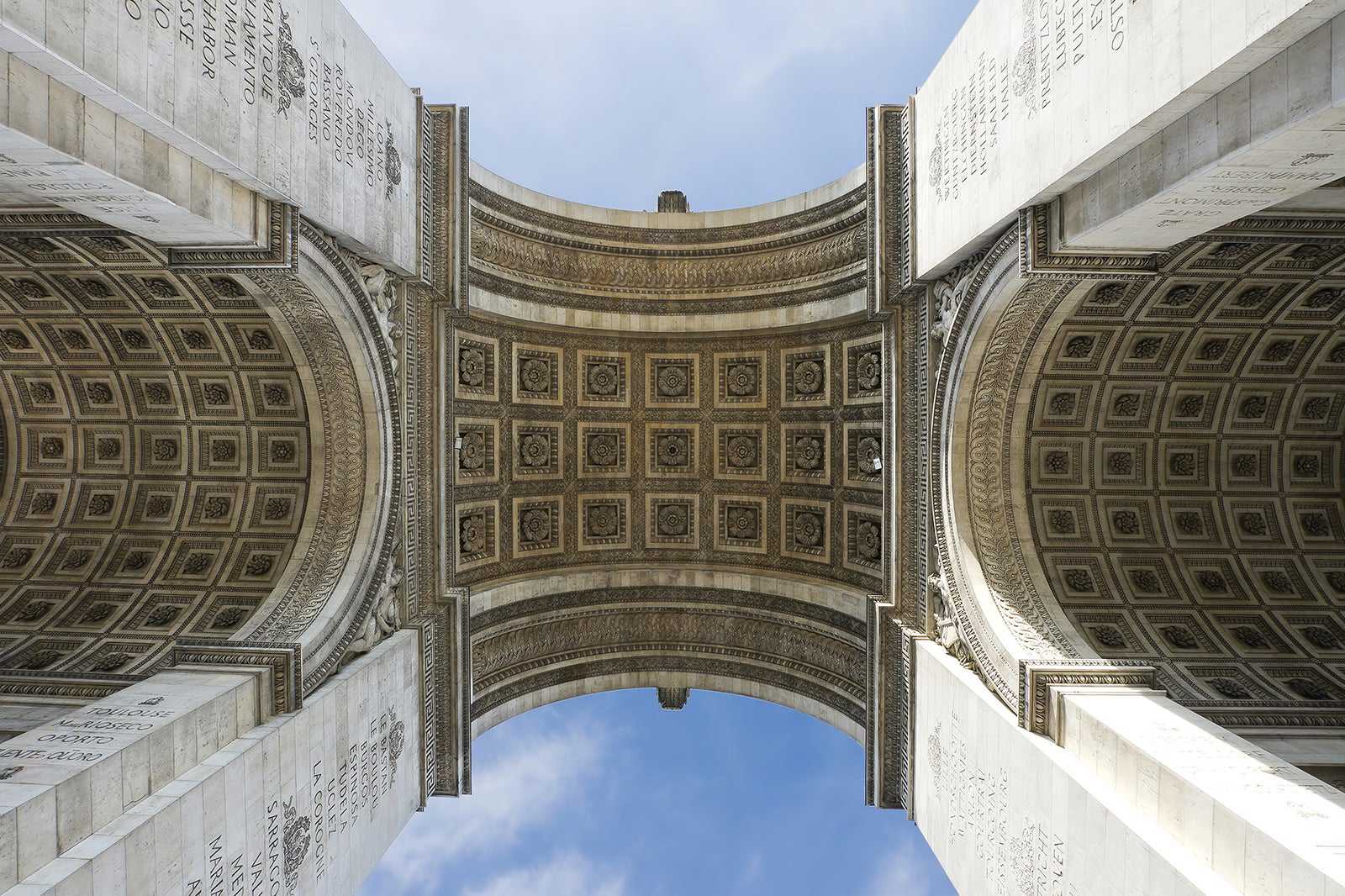
Arc de Triomphe in Paris
ที่ตั้ง: Place Charles de Gaulle, 75008 Paris, France
เปิด: Daily from 10 am to 10 pm
โทร: +33 (0)1 55 37 73 77



